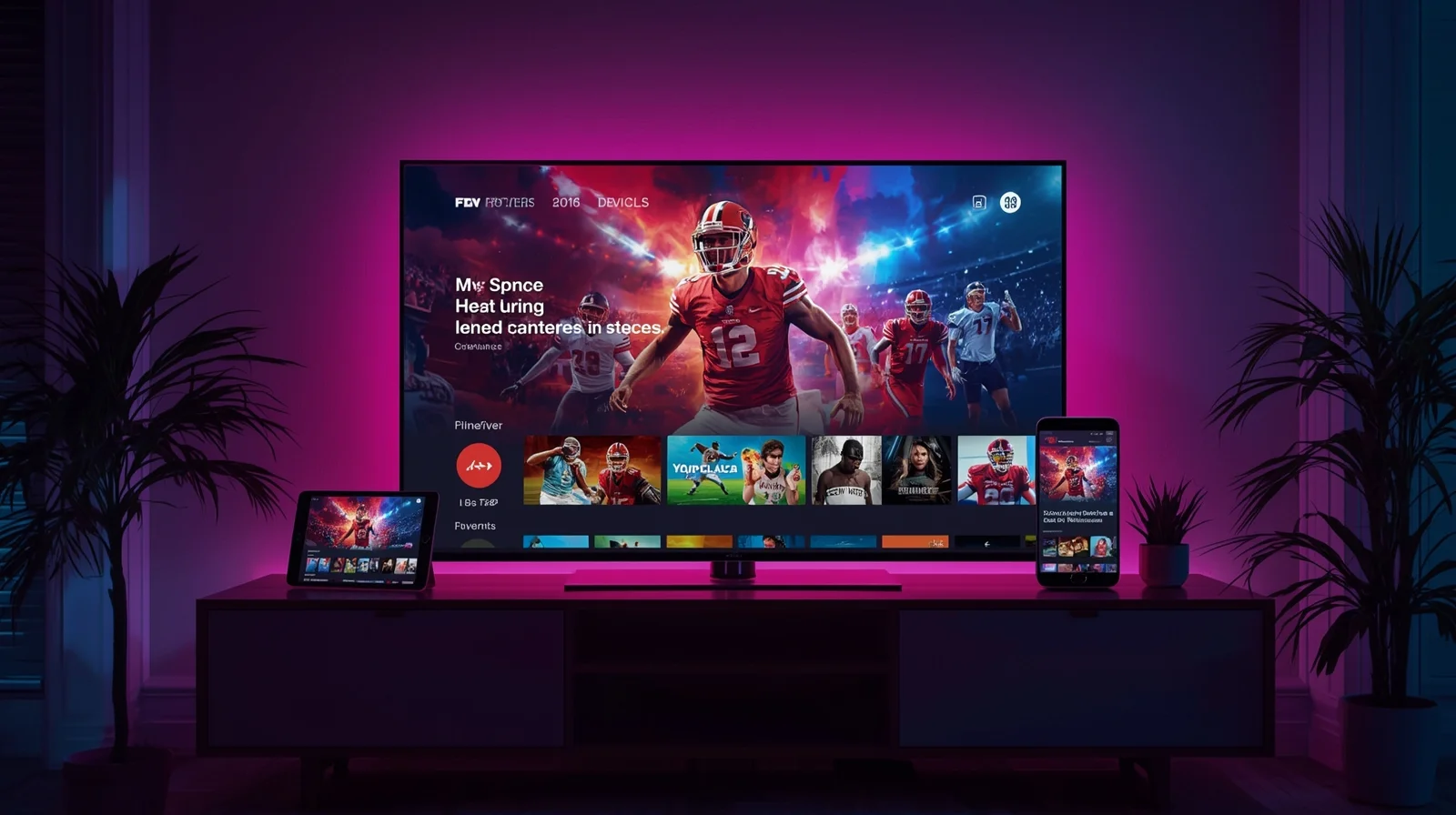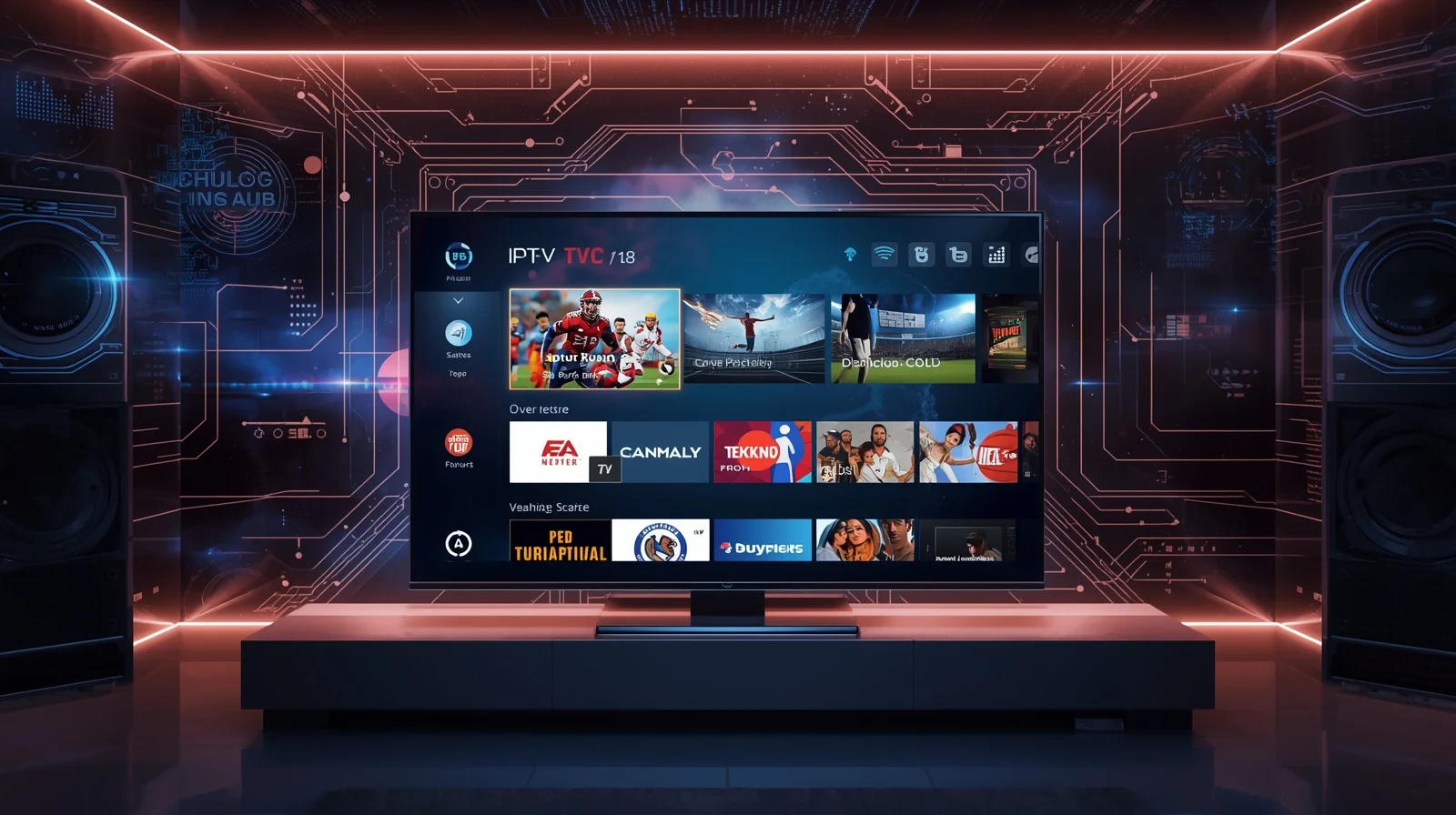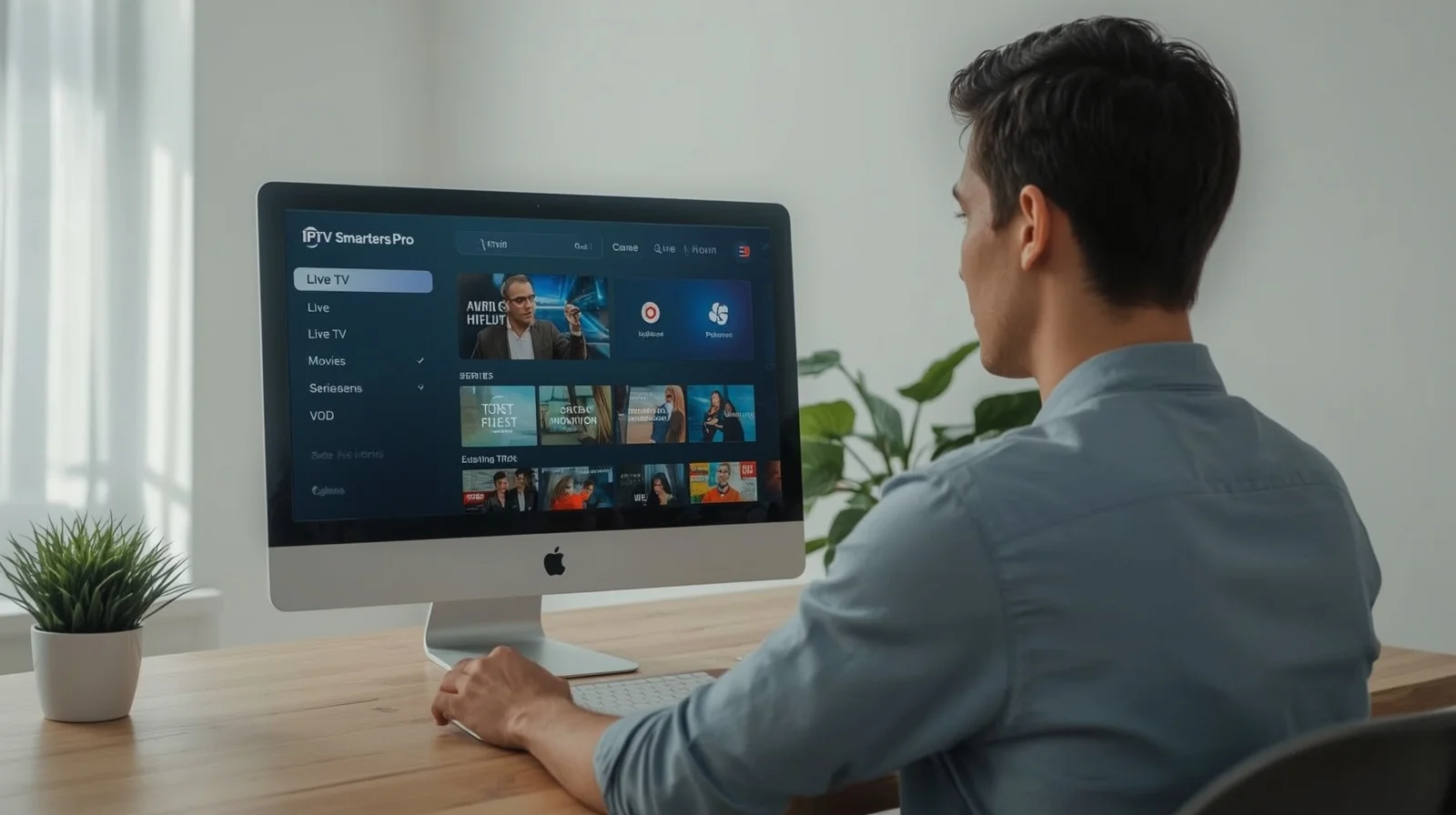IPTV: The Complete Guide and Answer to All Your Questions
Discover the intricacies of IPTV in this comprehensive guide, addressing everything from choosing the right IPTV service provider to troubleshooting common issues. Whether you’re new to IPTV or a seasoned user, this guide will ensure you're fully equipped to optimize your IPTV experience and enjoy the best live TV streaming, movies, and on-demand shows.
🔥 Don’t Miss the Best IPTV Deals in Tunisia!
Affordable plans, stable streaming, and easy activation with prepaid IPTV cards. Contact us now and get started!
🔥 Get Your IPTV NowIntroduction to IPTV Services and Streaming
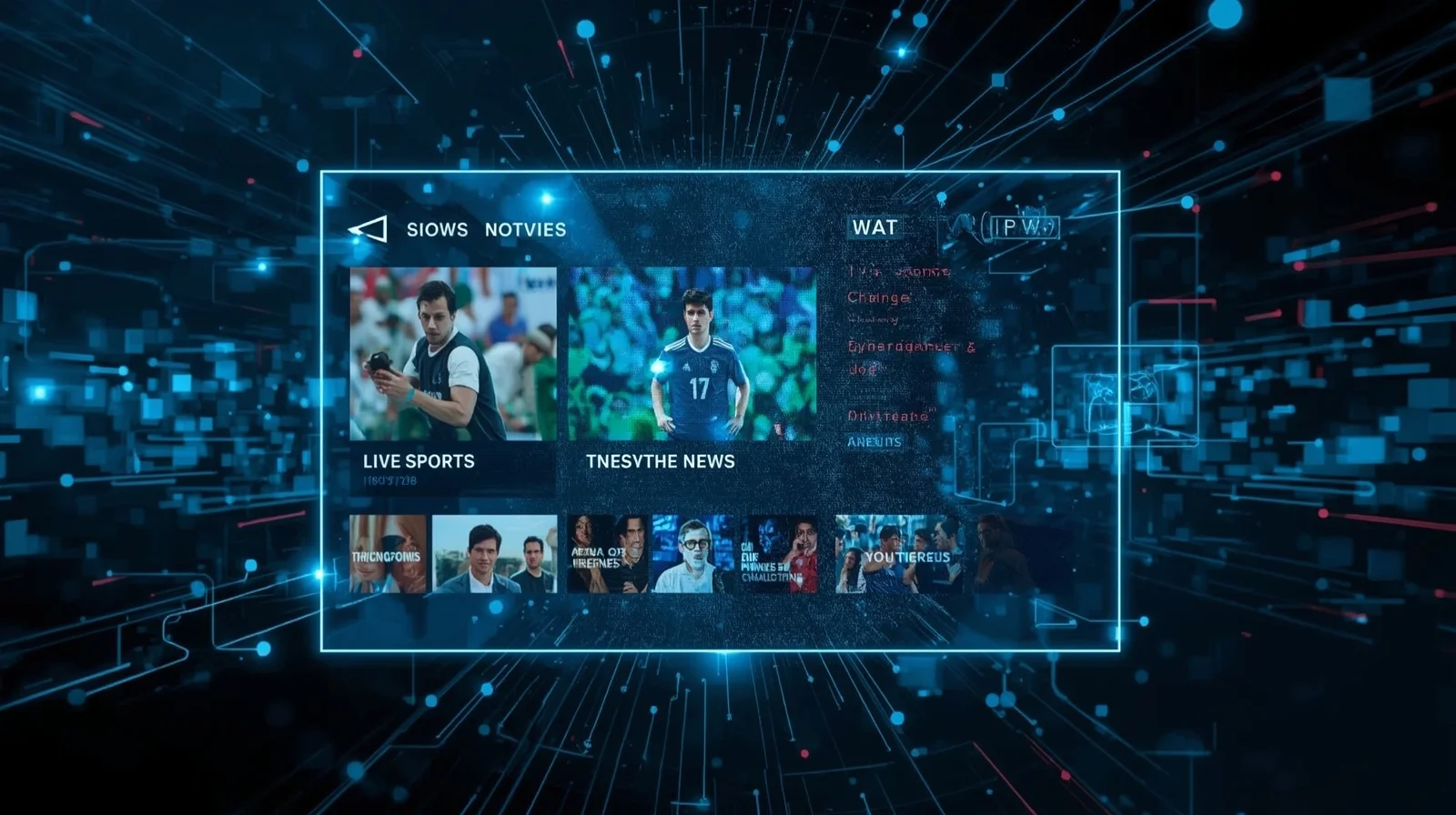
IPTV (Internet Protocol Television) is revolutionizing the way viewers experience television, offering modern IPTV services that provide seamless live TV streaming, on-demand movies, and exclusive sports events over the internet. Unlike traditional cable or satellite, IPTV streaming delivers content straight to your device, allowing unmatched flexibility, interactive controls, and enhanced personalization.
Whether you’re interested in finding the best IPTV providers for your next IPTV subscription, streaming IPTV for sports, or simply curious about how IPTV works, this complete guide covers every aspect you need to know. We’ll help you choose the right IPTV service provider, walk you through installing IPTV apps, and guide you to the best IPTV box for your home setup.
From optimizing your streaming experience with leading IPTV apps to understanding advanced features, pricing, and troubleshooting, this is your go-to reference for mastering IPTV services and getting the most from your TV entertainment.
What is IPTV?
IPTV—short for Internet Protocol Television—is a technology that delivers television and video content over the internet via digital data packets, replacing traditional cable or satellite signals. Unlike conventional broadcasting, IPTV streaming is highly flexible. Users can choose what to watch and when, streaming shows, live sports, or movies on smart TVs, computers, mobile devices, or even the best IPTV box for top performance.
With advanced IPTV services and apps, your entertainment experience goes beyond regular TV: you get customizable content, interactive features, and options for both on-demand and real-time live TV streaming.
For more info, click IPTV streaming services.
How IPTV Works: The Technology Behind IPTV Streaming
Understanding How IPTV Works
IPTV services operate by delivering TV content over the internet using sophisticated data transmission and streaming techniques designed to provide reliable, high-quality video. Here’s a comprehensive breakdown of the technical process behind IPTV streaming:
Content Acquisition
The IPTV service provider obtains live TV channels, IPTV for sports, premium movies, and other video content from broadcasters or through direct agreements with networks and studios.
Video Encoding and Compression
Acquired content is encoded and compressed using advanced codecs like H.264 (AVC), H.265 (HEVC), or VP9. This step is crucial for reducing the size of video files without compromising quality, enabling efficient transmission of HD and 4K HDR streams over various internet connections. Adaptive bitrate encoding is often used, dynamically adjusting video quality in real time to match the viewer’s bandwidth and avoid interruptions.
Data Packetization and Streaming Protocols
The compressed video data is divided into smaller digital packets for internet transmission. These packets are delivered to users’ devices using streaming protocols such as:
- UDP (User Datagram Protocol): Commonly used for live IPTV streaming, especially for sports and news. UDP allows fast delivery because it skips error-checking steps, tolerating minor packet loss while delivering real-time playback with minimal delay. This makes it especially suited for situations where timely delivery is more critical than perfect accuracy.
- TCP (Transmission Control Protocol): Preferred for on-demand and catch-up IPTV services. TCP ensures reliable data delivery by confirming packet arrival and retransmitting any lost packets, resulting in fewer errors and consistent high-quality playback. TCP may introduce slightly more latency but is better for activities where viewing quality is a priority.
IPTV service providers often leverage Content Delivery Networks (CDNs) and adaptive bitrate streaming to reduce network delays and optimize delivery across different devices.
Network Distribution and Quality Optimization
To minimize buffering and maximize quality, IPTV service providers often use Content Delivery Networks (CDNs) with strategically placed edge servers. These servers store copies of popular content closer to users, reducing travel time and network congestion.
Many IPTV platforms also employ multicast delivery for efficiently sending the same live stream to many users, cutting down unnecessary data duplication across the network.
Adaptive bitrate streaming ensures the video quality automatically steps up or down based on your device’s connection speed to prevent interruptions.
Decoding and Playback
Upon arrival, your IPTV app, smart TV, or set-top box decodes the data packets and reconstructs the video stream for seamless viewing. The device may adjust playback quality mid-stream based on network conditions for optimal performance.
Technical Challenges in IPTV Streaming
Despite its many advantages, IPTV streaming faces several technical challenges:
- Buffering and Stuttering: Occurs when the internet speed is insufficient, the network is congested, or the provider’s server is overloaded. Consistent buffering can also result from high network jitter, especially on Wi-Fi or mobile connections.
- Latency: There can be a noticeable time delay—especially on live IPTV for sports—due to the combined effects of encoding, packetization, network routing, and decoding. Providers continually invest in technology to minimize this gap.
- Packet Loss: Lost or out-of-order packets can cause image distortion, artifacts, or even cause streams to freeze. Reliable IPTV service providers and high-quality internet connections help mitigate this.
- Device Compatibility: Not every smart TV, set-top box, or IPTV app supports all video codecs or streaming protocols, so using up-to-date devices and apps from best IPTV providers is important for smooth operation.
Follow link How IPTV works for more information
What Are the Benefits of IPTV Over Traditional TV?
Modern IPTV services offer significant advantages compared to legacy TV, especially when using reputable IPTV providers and apps:
- On-Demand & Live Viewing: Stream what you want, when you want, including live IPTV for sports, movies, and TV shows.
- Interactive Features: Pause, rewind, fast-forward, or schedule recordings, even with live TV.
- Global Channel Access: Enjoy a vast array of local and international content.
- Cost Savings: IPTV subscriptions often cost less than cable/satellite, with options for a-la-carte channel selection.
- Customizable Packages: Choose only the channels and add-ons you’ll actually use.
- Multiscreen Compatibility: Watch on smart TVs, tablets, smartphones, laptops, PCs, and the best IPTV box or streaming stick.
- Flexible IPTV Subscription Options: Monthly, annual, or prepaid IPTV subscription plans to fit your needs.
What is the Best IPTV Service Provider?
How to Choose the Right IPTV Service
Selecting the best IPTV providers is crucial. Here’s how to find a reliable IPTV service provider for a seamless IPTV streaming experience:
- Channel Availability: Check if the service offers both local and international channels, and whether it has specialty genres (movies, IPTV for sports, kids, documentaries).
- On-demand Library: A great IPTV provider includes a large selection of on-demand content.
- Device Compatibility: Ensure there are compatible IPTV apps for smart TVs, smartphones, streaming sticks, and the best IPTV box options.
- Video Quality: Look for providers that offer HD, 4K, and support for high-refresh rates or HDR.
- Customer Support & Uptime: Reliable 24/7 customer support is a hallmark of the best IPTV providers. Look for transparent uptime reporting and quick resolution to issues.
- Free Trial or Demo: Many IPTV services offer free trials—use these to test stream quality, content variety, user interface, and app performance before you commit.
- Reputation & Reviews: Research unbiased customer reviews, visit forums, and check sites like iptv-premium-tunisie.com, mysat.tn, and orcaiptv.com for more information.
- Legal Compliance: Always check the provider’s licensing and transparency to avoid legal risks.
You can choose best iptv provider from Top IPTV providers.
🚀 Ready to Access Premium IPTV Service?
Stream unlimited channels in HD quality with no subscriptions or hidden fees. Enjoy worldwide entertainment anytime, anywhere!
🌍 Get Started Now – No Hidden FeesHow to Choose the Best IPTV Box
An IPTV box, or set-top box, can elevate your experience—especially on non-smart or older TVs. Consider the following when picking the best IPTV box:
- Device Compatibility: Should easily connect to your TV and network, and run all major IPTV apps.
- Performance Specs: Look for boxes with 4K/HDR support, fast processors, ample RAM, and regular software updates.
- App Ecosystem: Compatibility with popular IPTV apps (such as TiviMate, IPTV Smarters, GSE Smart IPTV).
- Ease of Use: Plug-and-play setup, intuitive interface, and a reliable remote control.
Popular Best IPTV Boxes:
- Amazon Fire TV Stick 4K/4K Max
- MAG Box series
- NVIDIA Shield TV
- Apple TV 4K
Is IPTV Legal?
The legality of IPTV depends entirely on whether the IPTV service provider is authorized to distribute the content they offer. Some IPTV services operate fully within the law, while others may supply unlicensed streams of TV channels, movies, or sports—putting users at risk of copyright infringement.
How to Verify the Legality of IPTV Services
- Check for Licensing and Accreditation: Before subscribing, visit the IPTV service provider’s website and look for clear statements about content licensing and distribution rights. Credible services are transparent about their agreements with major broadcasters, studios, or official networks.
- Research the Provider’s Background: Read online reviews and browse trustworthy tech and industry forums to see what users say about the provider’s legitimacy. Well-known, reputable IPTV services rarely receive complaints about illegal or pirated content.
- Avoid Suspiciously Cheap or Free IPTV Services: If a service offers hundreds of premium channels for an unusually low price, it may not be operating legally. Legitimate IPTV subscriptions are competitively priced and reflect the cost of acquiring and delivering licensed content.
- Confirm the Origin of IPTV Apps: Only install IPTV apps from official platforms like the Apple App Store, Google Play Store, or the device manufacturer’s app marketplace. Be cautious with third-party APKs or apps from unofficial sources.
- Contact Customer Support: Legitimate IPTV service providers should be able to answer questions about their licenses and provide documentation if requested.
- Look for Reliable Payment Methods: Trustworthy services support secure, traceable payment options. Be wary of providers that only accept payments through anonymous methods.
- Assess Service Transparency: Legal IPTV services provide full contact information, business addresses, and straightforward terms of service and privacy policies.
Ensuring Compliance with Copyright Laws
- Subscribe only to licensed IPTV services.
- Never redistribute, share, or record content in violation of copyright agreements.
- Stay updated on the laws in your region, as copyright and streaming regulations can vary by country.
Using licensed and accredited IPTV providers not only guarantees a safer, higher-quality viewing experience but also helps support creators and broadcasters.
How to Set Up IPTV: Step-by-Step IPTV Setup Guide
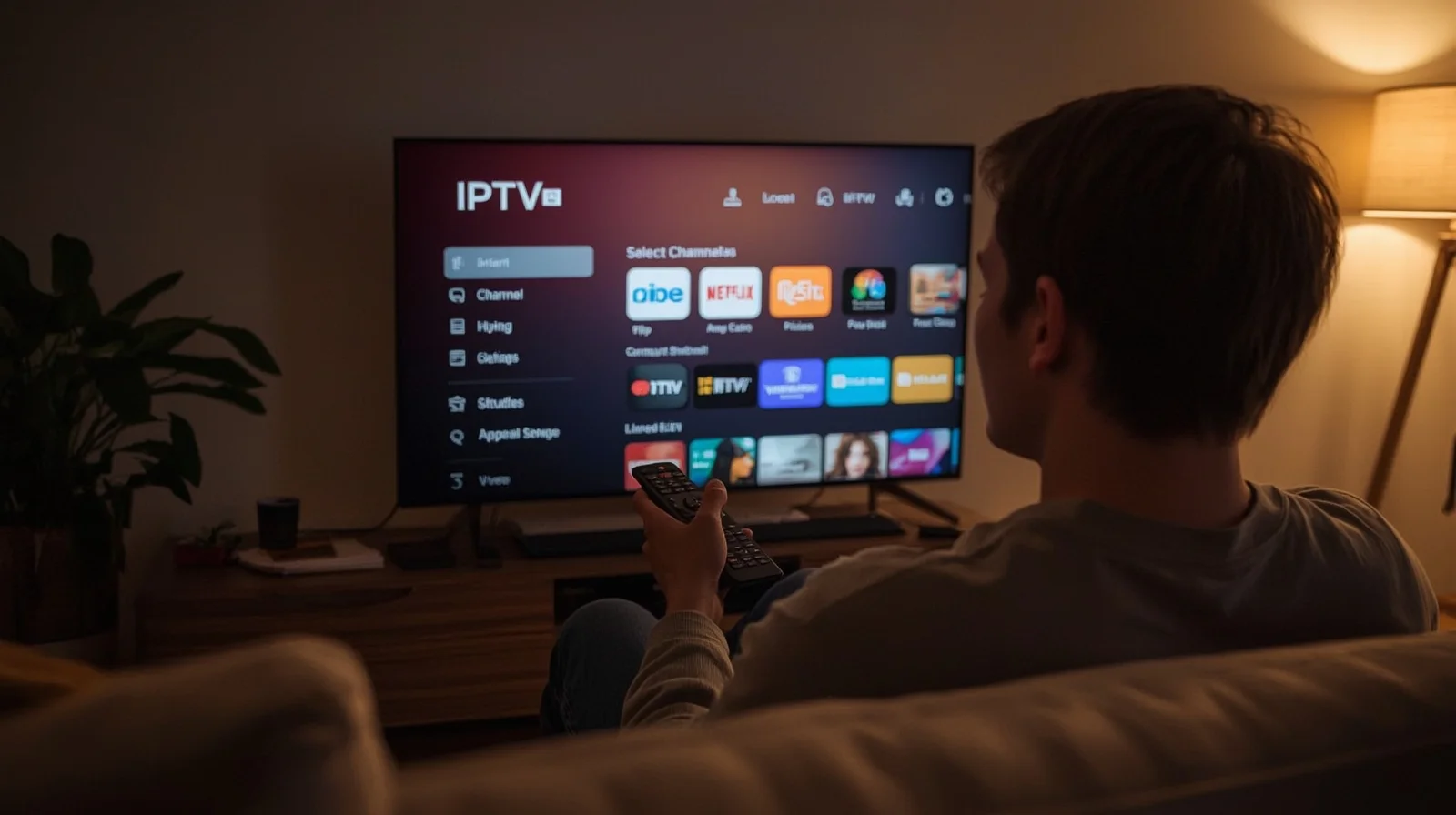
Getting started with IPTV streaming is easy, especially when you have a trusted IPTV service provider, a compatible device, and optimized IPTV apps. Follow the steps below for a seamless IPTV subscription setup and troubleshooting.
- Choose an IPTV Service Provider: Research and select a reputable, legal IPTV service provider that offers the channels, sports, and features you want.
- Select and Prepare Your Device: Most Popular Compatible Devices: Smart TVs: Samsung, LG, Sony, Android TV – many come with dedicated IPTV apps in their app store.
- Install an IPTV App: Find and download a reputable IPTV app that matches your platform. (Smart IPTV, TiviMate, IPTV Smarters Pro, etc.)
- Add or Install Your Playlist (M3U, Xtream Codes API, etc.): Instructions vary depending on your device.
- Configure App Settings for Optimal Performance: Resolution/Quality: Select HD, Full HD, or 4K, depending on your device and internet speed.
- Login, Register, and Activate: Use the credentials provided by your IPTV service provider.
- Start Streaming and Enjoy: Explore and sort your channels. On-demand content and live IPTV for sports should now be accessible from your IPTV apps.
- To Get full guide for installing IPTV on IPTV Smarters pro Visit IPTV setup guide.
Troubleshooting Tips for IPTV Setup
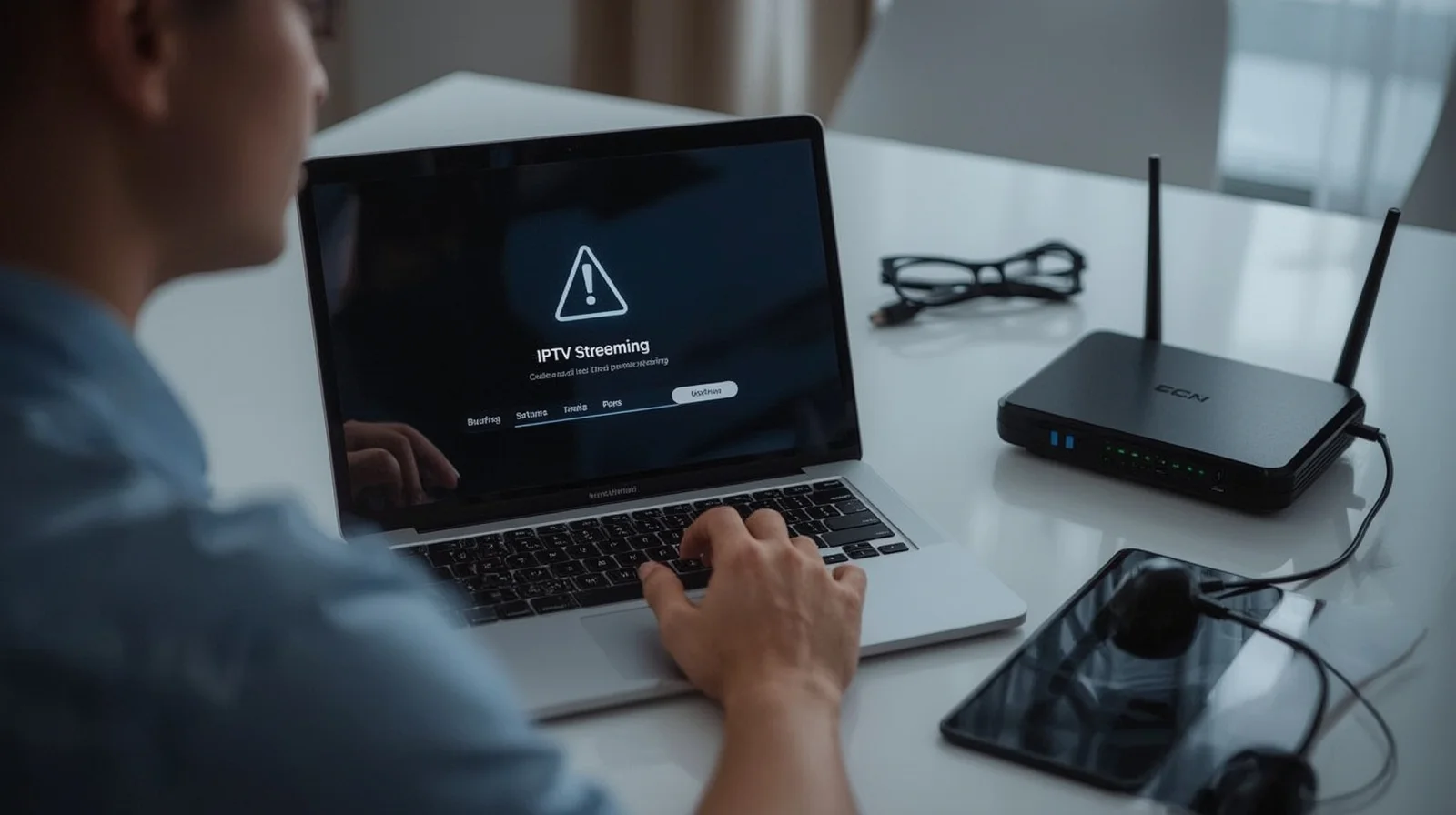
No channels or playlist not showing up:
- Double-check for typos in your M3U URL or login details.
- Test the M3U link in another IPTV app or device.
- Make sure your IPTV subscription is active and not expired.
- Restart both the app and the device.
Buffering or freezing:
- Reduce video resolution in the app.
- Switch to a wired Ethernet connection for greater reliability—especially for 4K HDR content.
- Confirm your internet speed meets the provider’s recommendations.
- Try a different server or channel to isolate the issue.
What Devices Support IPTV?
IPTV streaming works across a huge range of modern devices, especially when using up-to-date IPTV apps and high-quality networks. Below are recommended options and setup tips:
- Smart TVs: Most Samsung, LG, Sony, and Android TVs support the major IPTV apps—many with 4K HDR, Dolby Vision, and up to 120Hz refresh rate.
- Best IPTV Box/Set-top Boxes: Fire TV Stick 4K/Max, MAG Box, NVIDIA Shield TV, Apple TV 4K, and Roku Ultra. All of these support 4K/HDR, and many feature fast processors and extra memory.
- Streaming Sticks: Chromecast with Google TV, Fire Stick 4K, Roku Streaming Stick+. Set to the highest supported resolution and connect to a fast Wi-Fi network (5GHz or Ethernet adapter if supported).
- Mobile Devices (Android/iOS): Run popular IPTV apps, utilize adaptive streaming and hardware acceleration, and keep the app updated for best results.
Free vs Paid IPTV Services: Key Differences and Considerations
Free IPTV Services
- No subscription fees
- May offer some popular or local channels
Paid IPTV Services
- Vast content libraries including premium movies, sports, and international channels.
- Consistently high streaming quality, with HD/4K capabilities and minimal buffering.
- Ad-free viewing and professional user experience.
What Internet Speed Do I Need for IPTV Streaming?
- SD (Standard Definition): 3–5 Mbps per stream
- HD (High Definition): 10 Mbps per stream
- 4K/UHD: 25 Mbps or more per stream
Can I Get Free IPTV Services?
While free IPTV services exist, they often bring hidden costs:
- Frequent downtime, buffering, and poor user experience.
- Risks of malware, intrusive ads, or data theft.
- Legal risks due to unlicensed/illegal content offerings.
Legal Alternatives: Opt for ad-supported or free trial periods from major providers, or explore providers like Pluto TV, which offer legal free streaming.
Common IPTV Problems and How to Fix Them
Even with the best IPTV services and IPTV apps, you may encounter streaming issues from time to time. Here’s how to address the most common IPTV problems:
Buffering/Freezing
- Check that your internet speed meets or exceeds the recommended requirements for IPTV streaming (see above).
- Upgrade your internet plan if your current speeds are inconsistent or insufficient for HD or 4K IPTV streaming.
- Always use a wired (Ethernet) connection instead of Wi-Fi for greater streaming stability and less interference.
How Much Does IPTV Cost?
IPTV subscription costs can vary greatly depending on the provider, the available channels, and additional services offered. Basic packages typically start at around $10 per month, while more comprehensive plans can range anywhere from $20 to $50 or more per month. Some providers also offer yearly subscriptions at discounted rates. It's important to research and compare different providers to ensure you're getting the right balance of quality, features, and pricing to suit your needs. Always verify the legitimacy of the service to avoid unreliable providers or potential legal issues.
💰 Affordable IPTV Plans Await You!
Explore our competitive prices and choose the plan that fits your needs. Get instant access to top-quality IPTV services with no hidden fees!
🔎 Check Our PricingFrequently Asked Questions (FAQ)
1. What is IPTV and how does it work?
IPTV, or Internet Protocol Television, is a technology that allows you to stream TV content over the internet instead of traditional satellite or cable TV. IPTV uses digital data packets to deliver content like live TV, on-demand videos, and sports. It is more flexible and offers better customization than conventional television.
2. What devices can I use to watch IPTV?
You can watch IPTV on various devices, including smart TVs (Samsung, LG, Sony, Android TV), smartphones (Android and iOS), tablets, PCs (Windows/Mac), and streaming devices (like Amazon Fire TV Stick, MAG Box, and Apple TV 4K). Ensure that your chosen device supports IPTV apps or services.
3. Can I get IPTV for free?
While there are free IPTV services available, they often come with significant limitations such as poor video quality, frequent buffering, malware risks, and potentially illegal content. It’s recommended to opt for paid, legal IPTV services for a more reliable and secure streaming experience.
4. Is IPTV legal?
The legality of IPTV depends on whether the service provider has the proper content licenses. Legitimate IPTV providers distribute licensed content, whereas unlicensed services may offer pirated streams, which are illegal. Always verify the IPTV provider’s licensing status before subscribing to avoid legal issues.
5. How do I improve my IPTV streaming quality?
To improve IPTV streaming quality, ensure you have a stable internet connection, preferably via Ethernet. Choose a service provider that offers high-definition or 4K content. Lower video quality in the app settings if buffering persists, and ensure your device’s hardware is optimized for streaming.
Conclusion
In conclusion, IPTV is a modern and flexible alternative to traditional cable or satellite TV, offering a wide range of content including live TV, on-demand movies, sports, and much more. By choosing a reputable IPTV service provider, ensuring compatibility with your devices, and optimizing your setup, you can unlock an enhanced streaming experience tailored to your preferences.
From selecting the best IPTV service to troubleshooting common issues, this guide has covered all the essential steps for getting the most out of your IPTV experience. Whether you're a sports enthusiast, a movie lover, or just someone who wants more control over what and when you watch TV, IPTV is an exciting option that opens up countless possibilities for personalized viewing.
If you have any further questions, feel free to reach out to your IPTV service provider or consult the resources and troubleshooting tips shared in this guide. Happy streaming!
Ready to Get Started?
If you're ready to dive into the world of IPTV, we recommend starting with a trusted IPTV service provider offering a free trial. Test out different services, find the best one for your needs, and begin enjoying your favorite content without the hassle of traditional cable subscriptions!
Bonus Tips for Enhancing Your IPTV Experience
- Use a VPN: Protect your privacy and secure your connection by using a VPN while streaming IPTV. It ensures that your data is encrypted and that you can access content from different regions without restrictions.
- Keep Your Apps Updated: Ensure that your IPTV apps are always up to date. Updates often include new features, bug fixes, and improvements that will enhance your streaming experience.
- Optimize Your Internet Connection: For smooth streaming, a stable internet connection is key. Use Ethernet over Wi-Fi when possible, and make sure your internet plan supports the bandwidth required for 4K or HD streaming.
- Use Multiple Devices: Most IPTV services support multiscreen functionality. You can stream on multiple devices simultaneously, allowing everyone in the house to enjoy their favorite shows or sports events at the same time.
- Adjust Quality for Low Bandwidth: If you're experiencing buffering, try reducing the video quality in your app settings. This will help reduce the load on your internet connection.
